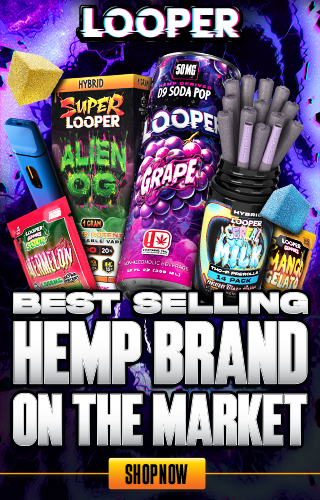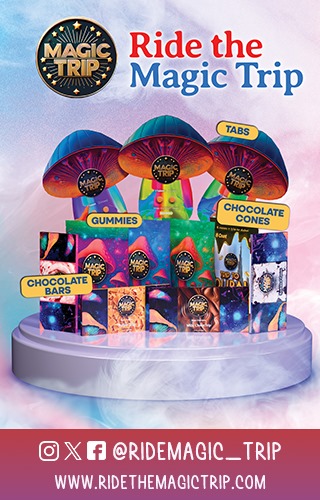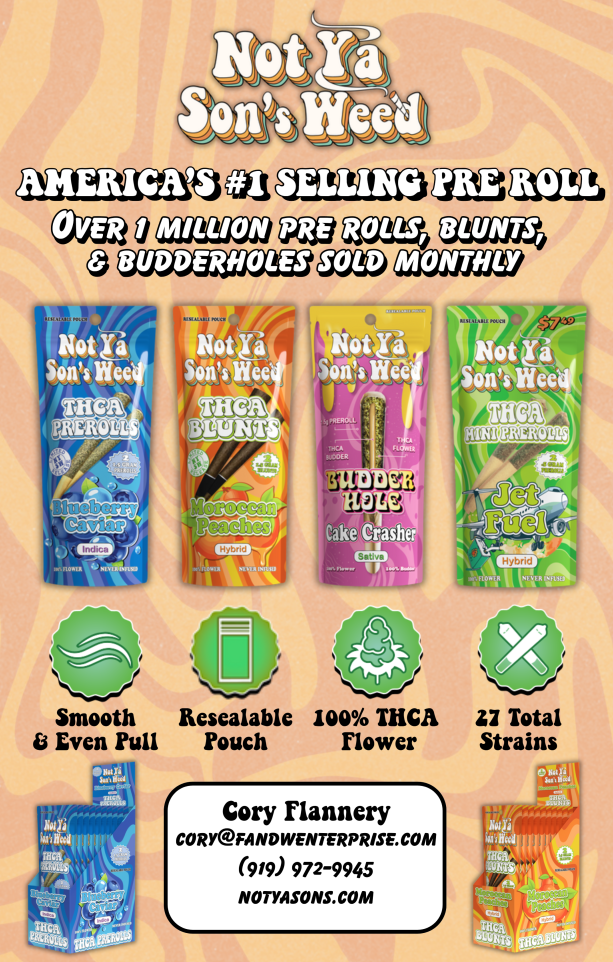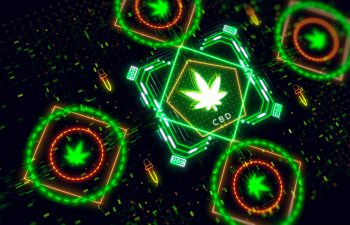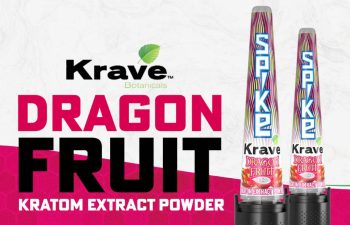THCA: The Precursor Explained
THCA has gained substantial attention over the last year due to a loophole in the Farm Bill that has allowed countless hemp companies to sell traditional what would otherwise be considered psychoactive cannabis as a legal hemp product. In this column we will look at the compound from a scientific, medicinal, and legal standpoint and pick apart the logic that gave rise to THCA hemp flower as a viable product in the marketplace.
When cannabis users toke up, they are actually conducting chemistry as their lighters, vaporizers, and various heat sources, heat THCA and activate it to become THC, the form of the molecule that produces psychoactive effects.
What is the difference between THCA and THC?
THCA or Tetrahydrocannabinolic acid is the acidic form of THC that is naturally occurring in all varieties of the cannabis plant. THCA is non-psychoactive and has to be heated to be converted to THC in order to become psychoactive. This is why cannabis consumers don’t get high from eating raw cannabis; without heating the plant matter, the THCA will not cause a psychoactive effect. THC, short for delta 9 Tetrahydrocannabinol, is the main molecule in cannabis responsible for the high or psychoactive effects produced by the plant. Delta 9 THC works in conjunction with terpenes, other cannabinoids, and naturally occurring compounds to produce the psychoactive effect.
When cannabis users toke up, they are actually conducting chemistry as their lighters, vaporizers, and various heat sources, heat THCA and activate it to become THC, the form of the molecule that produces psychoactive effects. This heat activation process is known as decarboxylation, and all forms of cannabis inhalation and edible manufacturing employ this process to make cannabis psychoactive.
What happens if you consume THCA?
If you ingest pure THCA it will not create the psychoactive effects that many people desire from THC. While the effects of THCA have not been fully researched, it is believed to have the potential to help relieve physical discomfort and help regulate healthy body function. There is definitely substantial anecdotal evidence to support potential health benefits of THCA, but THC is a lot more potent and powerful milligram per milligram.
In order to get the effects of THCA, you would have to consume raw cannabis buds or plant matter where the majority of the total THC still exists in the acidic form of THCA. As soon as you light the extract or plant matter to smoke it, you are removing the CO2 bond from the THCA and activating it to produce THC.
How to activate THCA into THC for edibles
Whether you are starting with cannabis flower, or extracts like CO2, BHO, and rosin, you will need to activate the THCA to make psychoactive THC using heat. If you are planning to make edibles it is best to use a fatty carrier oil such as coconut oil, butter, or any fatty oil that can be heated. Carefully heat the cannabis extract or plant matter into your carrier oil, making sure the temperature of the oil does not exceed 230 degrees Fahrenheit; your target temperature range is between 215-225 F.
While you heat the oil, you will want to stir frequently to help facilitate the process of THCA converting to THC. It will be clear that the THCA is converting to THC because the acidic part of the compound escapes in the form of CO2, which will produce many tiny air bubbles. This is a sign that the process is working, and you will want to continue heating the plant matter or extract until there are no more air bubbles produced when you stir. Once this is done you can filter the plant matter out and you are left with full activated cannabis-infused oil.
Is THCA legal under the Farm Bill?
THCA has gained substantial popularity in 2023/2024 due to a loophole in the 2018 Farm Bill which implies that THCA is federally legal (statewide legality is another question.) The 2018 farm bill separated hemp from the Controlled Substance Act which bans Cannabis at the federal level. In doing so, they legalized “the plant Cannabis sativa L. and any part of that plant, including the seeds thereof and all derivatives, with a [THC] concentration of not more than 0.3 percent on a dry weight basis.” There are two separate phenomena at play here which are the intent of the law and the language of the law.
The intent of the Farm bill was to legalize non-psychoactive hemp compounds like CBD and CBG and only allow non-psychoactive levels of naturally occurring THC. However, THCA is a separate molecule from Delta 9 THC that needs its own separate regulations, and once the hemp industry discovered that they can market traditional psychoactive cannabis indica and cannabis sativa buds as “legal THCA hemp flower” under this loophole, the THCA industry absolutely exploded.
To clarify, there is technically no naturally occurring THCA hemp flower. The vast majority of “THCA flower” being sold on the market is indistinguishable from psychoactive cannabis, and is labeled as “hemp” based on the narrowest of legal loopholes in the Farm Bill. Some THCA hemp flower may be actual hemp buds rolled in cannabis- derived THCA powder, but that still makes it more of a cannabis product than a hemp product. The issue is that we think of as hemp, and what we think of as cannabis are both the same species. They both produce terpenes, CBD, and THC to varying levels, making the only distinction between the two a legal one, as outlined by the Farm Bill’s .3% THC threshold. The distinguishing factor between cannabis hemp and the psychoactive varieties of cannabis is supposed to be the THC levels, but THCA is a narrow loophole that blurs the line between the two.
Do the Levels of THCA change over time in THCA flower?
The THCA loophole holds strong for a very short window while the plant matter is fresh and the levels of THCA are high compared to the levels of delta 9 THC. However, THCA converts to the psychoactive compound THC through time, heat, and oxidation (exposure to oxygen), and exposure to sunlight. This means that from the second the THCA flower is packaged it is slowly converting, and it does not take much time, light, or heat exposure to spike the THC levels above the legal limit of 0.3%.
THCA is not a stable molecule; it naturally converts to THC over time. Measures can be taken to slow down the decarboxylation process like keeping THCA flower away from light, airtight, and freezing the plant matter rather than storing it at room temperature. Taking these steps just delays the inevitable; the THCA is eventually going to convert to Delta 9 THC. If you are planning to sell THCA flower, know the risks, know the ideal shelf life, and conduct your own lab testing to confirm that the Delta 9 THC levels are below 0.3%. One thing to keep in mind, if THCA vendors are sending you lab tests that are more than 1 month old, the THCA has started to convert to THC, and the flower should be retested.
Brandon Schechter
Editor’s Note: This article is in no way intended to cast shade upon the vendors in this space who deal in THCA products. Those individuals are simply answering market demand, and doing so through the deft legal maneuvering that has been used to keep this industry alive for the past 40+ years. Unfortunately, as more and more state legislatures begin taking action to curb the growth of the hemp cannabinoid market, THCA seems to be the first compound in the crosshairs at nearly every turn. It is with a heavy heart that we predict a forced migration away from THCA in the coming months as reactionary laws and regulations continue to close the marketplace, state-by-state. Keep coming back here for new updates on these developments and please be patient with your vendors, many of whom are now being forced to pivot due to the new legal constraints.


